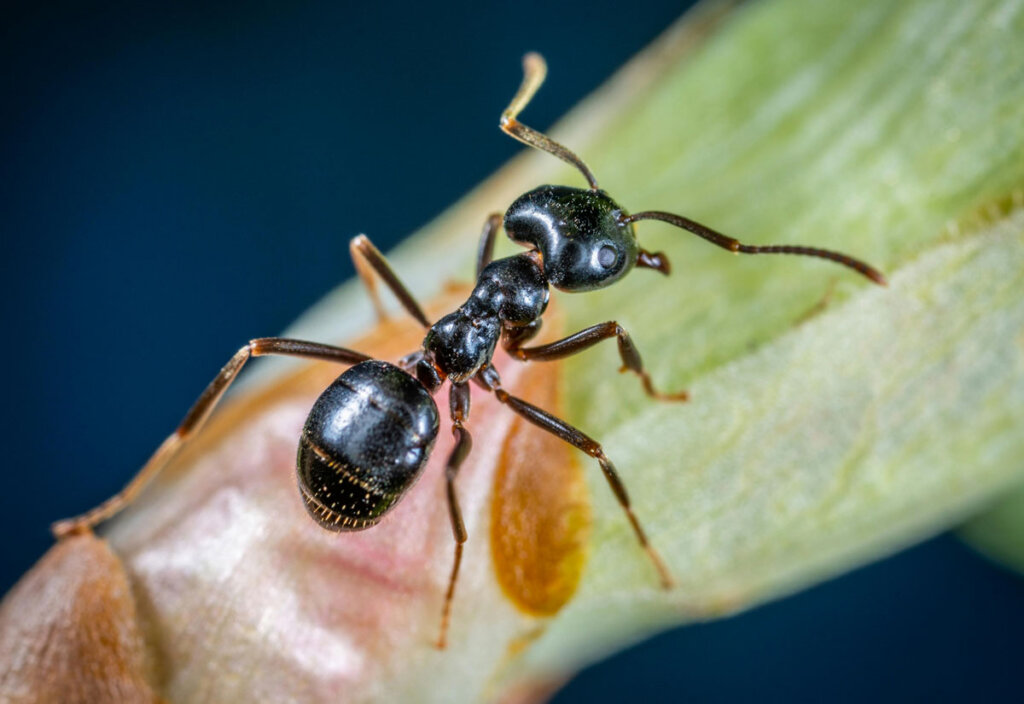
Key Takeaways
- Identifying the type of ant is crucial for determining the most effective pest management treatment.
- Carpenter ants require specific treatments, such as professional pest control treatments and bait stations, to address their nesting habits.
- Integrated pest management, including sealing entry points and using baits, is key to preventing future ant infestations.
Ants are an incredibly diverse group of insects, and while they may appear similar, their behavior, nesting habits, and food preferences vary significantly. Understanding the specific species causing the problem is crucial for effective pest management.
If you’re struggling with an ant infestation, it’s essential to work with local experts for ant pest management who can identify the species and offer the best treatment options.
This article will explore the different types of ants, the most effective treatments, and why a tailored approach is necessary to control and prevent future infestations.
Common Ant Species and Their Treatments
1. Carpenter Ants
Carpenter ants are known for their ability to damage wood structures. These ants nest in damp, decaying wood and can cause significant structural damage over time. They are larger than other species, and their nests can be found both indoors and outdoors.
Treatment: Carpenter ants require targeted treatment to address both the active nests and the surrounding environment. Professional carpenter ant treatments are highly effective for reaching these ants and ensuring that the entire colony is eradicated. Pest management services for homes often use bait stations combined with liquid treatments to manage carpenter ants effectively.
2. Odorous House Ants
Odorous house ants are small and brownish-black. They get their name from the distinct odor they emit when crushed. These ants are attracted to food sources, especially sugary substances.
3. Pharaoh Ants
Pharaoh ants are small, yellowish ants that often infest kitchens and food storage areas. They are notorious for forming multiple nests, making them difficult to control. They also carry diseases, which can pose a health risk.
Treatment: Due to their complex nesting habits, Pharaoh ants require a multi-pronged approach. A pest professional should be brought in and may recommend scheduled treatments to ensure the entire colony, including hidden nests, is addressed.
4. Fire Ants
Fire ants are aggressive and have a painful sting. They build large outdoor mounds and can invade homes, particularly in warmer climates. The venom in their stings can trigger allergic reactions, which makes these ants a major concern for homeowners.
Treatment: Fire ants are best managed through a combination of baits, which target the queen, and targeted pest management treatments. Professional pest management companies use treatments that can eliminate entire colonies, including their underground nests.
5. Thief Ants
Thief ants are tiny, yellow or light brown ants that are often found near food sources. They are called “thief ants” because they raid the nests of other ants, stealing food and larvae.
Treatment: Thief ants require specialized baiting methods to address the colony’s food sources. A pest management expert will likely use bait stations combined with liquid treatments to eliminate the colony.
6. Acrobat Ants
Acrobat ants are small, black ants that are often found nesting under rocks or logs. They are known for their ability to invade homes in search of food, particularly sweets.
Treatment: Acrobat ants are best managed using a combination of bait stations and liquid treatments that target the foraging trails and nests. Since these ants tend to nest in hard-to-reach places, bringing in a professional company with Board Certified Entomologists is key.
7. Pavement Ants
Pavement ants are often found in cracks in the pavement or under stones. They are small and black and typically forage for food at night. Although they don’t pose significant structural threats, they can invade homes and certainly be a nuisance.
Treatment: To address pavement ants, pest management professionals typically recommend targeted baiting and the sealing of entry points.
Do All Ants Respond to the Same Treatment Methods?
While many people might assume that all ants are the same, they are not. Each species has unique behaviors, nesting habits, and food preferences. This is why a one-size-fits-all approach does not work when managing ant infestations. Some ants, like carpenter ants, nest in wood and require different treatment than ants like the Pharaoh or fire ants, which nest in walls or the ground. For the most effective pest management, you need to work with pest control professionals who understand these differences and can use the right treatment methods for each species. Local experts for ant pest management have the experience to identify the type of ant and recommend the best treatments for long-term prevention.
Effective Ant Pest Control Methods
A variety of methods are available to control ant infestations, ranging from bait stations to liquid treatments. The most appropriate solution depends on the type of ants involved and the scale of the infestation.
In addition to professional pest management services, there are preventative measures homeowners can take to keep ants at bay. Sealing entry points, storing food in airtight containers, and maintaining a clean environment can help reduce the likelihood of future infestations. If ants are already a problem, calling in a professional pest management expert who specializes in ant treatment services is the best way to protect your home.
Protect Your Home with Expert Ant Pest Control
Ant infestations are more than just a nuisance – they can cause damage to your property and even pose health risks. The key to successful ant management lies in identifying the species involved and applying the most effective treatment.
If you’re looking for a reliable pest management partner, reach out to Western Pest Services for top-rated pest control services that ensure your home remains ant-free. With our expert treatment options, you can trust us to manage your ant problem effectively. Contact us today to safeguard your home from future infestations!